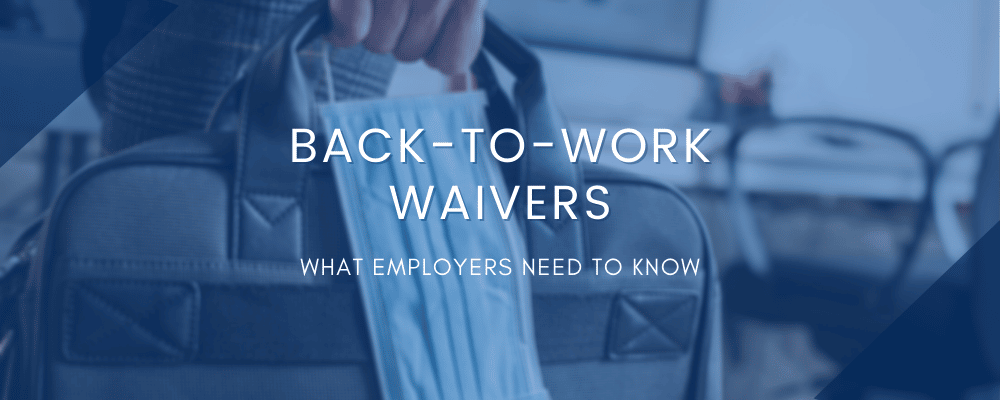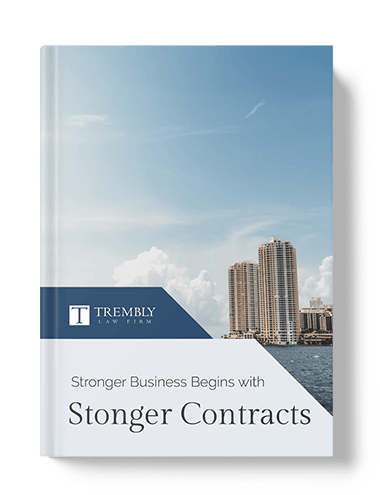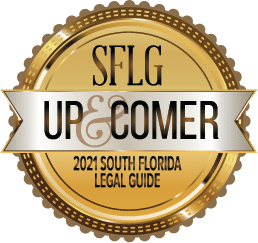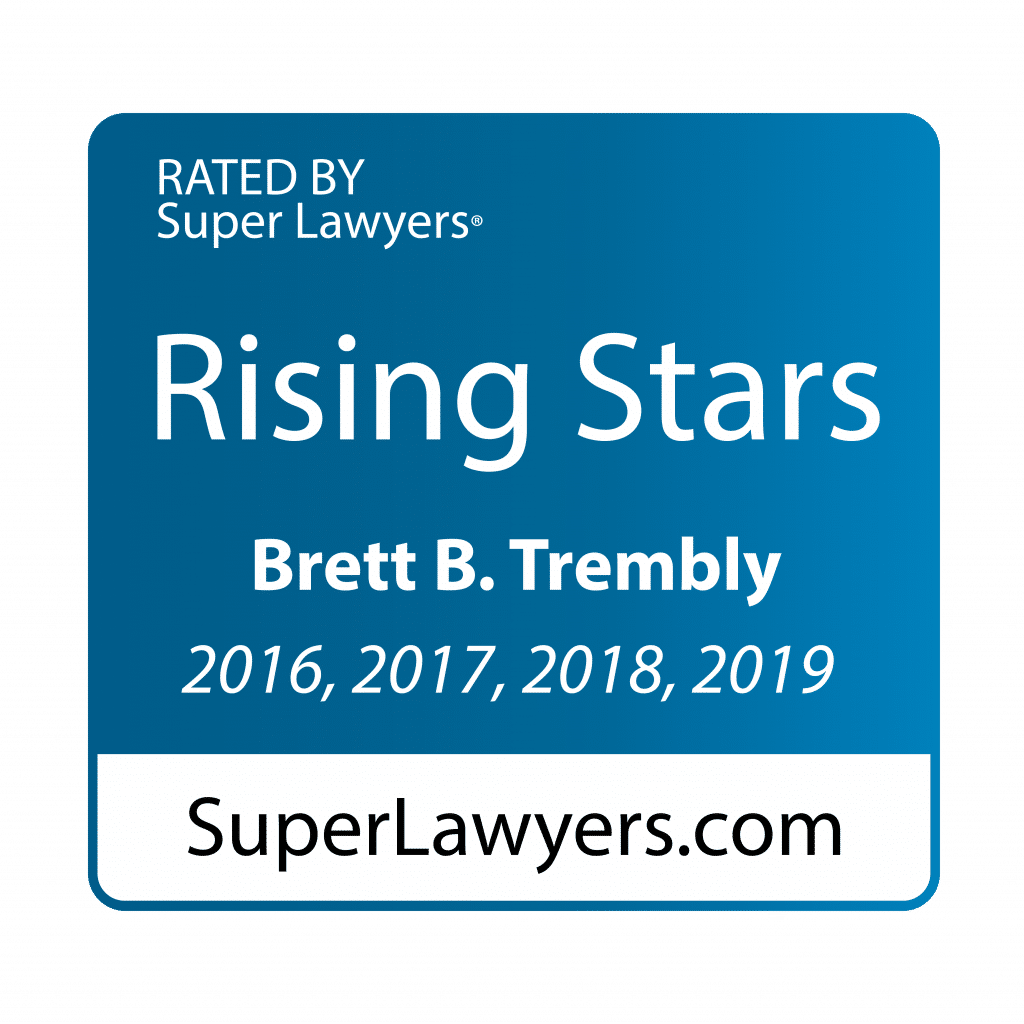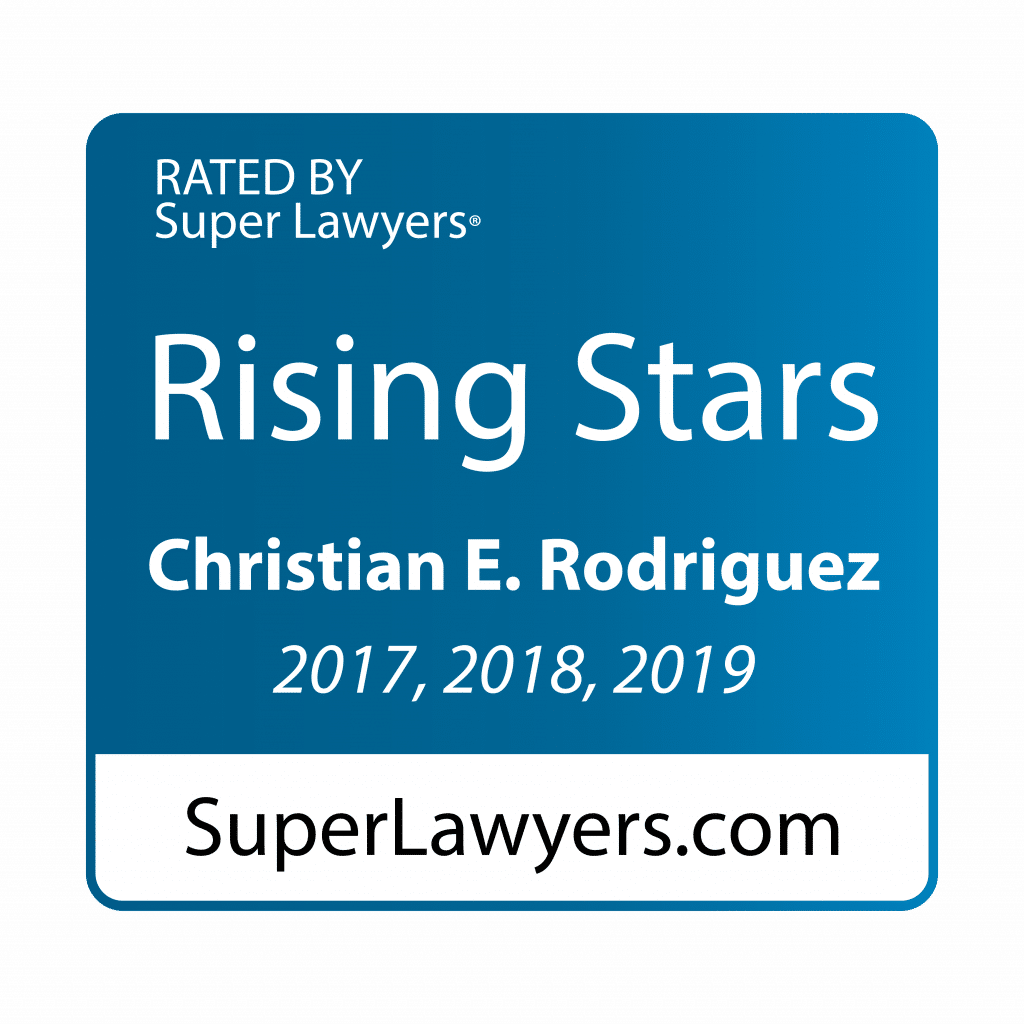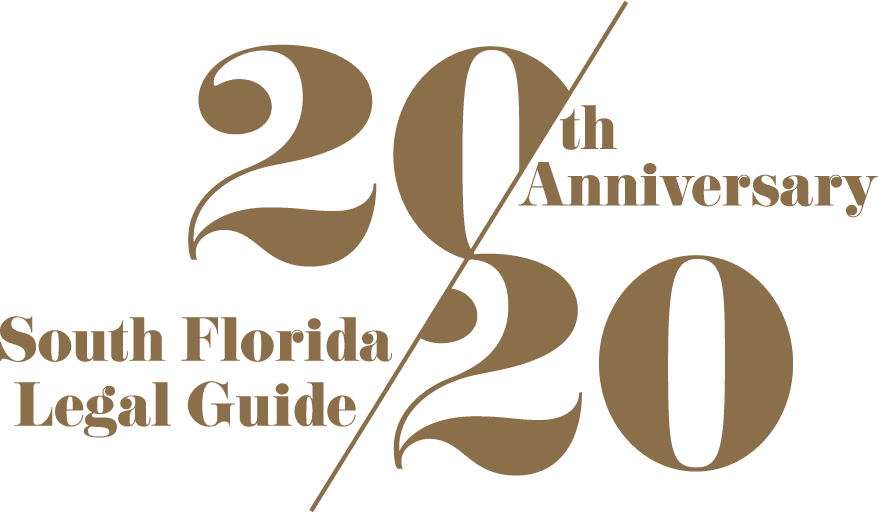Slowly but surely, the American economy is beginning to recover as the coronavirus gradually wanes and workers return to work. Bit by bit, state restrictions on businesses across the country are being lifted. Things vary greatly, of course, depending on which state or which part of the country we’re referencing; but, on the whole, restrictions are being pulled back and the workplace is starting to gain a sense of normalcy. Naturally, as employees begin to walk back into the office, many business owners ponder the question: should I ask my employees to sign a “back-to-work” waiver as a precautionary measure?
In this post, we will discuss using a back-to-work waiver as a form of liability protection. As we will see, although using a waiver may have some value, business owners shouldn’t automatically assume that a waiver will eliminate the possibility of litigation. Let’s explore this issue in a bit of detail.
Workers’ Compensation Takes Primacy
For one thing, the potential impact of back-to-work waivers may be lessened if your employees are covered by workers’ compensation insurance. Workers’ compensation insurance is a system in which employees are barred from suing their employers for certain accidents and occupational diseases. In exchange for this, employees are able to recoup some losses which result from their workplace-related injuries.
Workers’ compensation insurance cannot be waived, and so the effect of a back-to-work waiver when such insurance is in place would be basically nullified. However, workers’ compensation doesn’t protect employers in cases involving intentional wrongdoing. And, depending on which jurisdiction you’re in, there may be a possibility that COVID-19 isn’t considered an “occupational disease” within the scope of workers’ compensation insurance.
Business Owners Still Have a Duty of Care
Even if your employees aren’t covered by workers’ compensation insurance, it’s important to remember that you still have the responsibility of maintaining a safe environment. Under the federal Occupational Safety and Health Act, employers must observe certain standards when it comes to creating a safe work environment. What’s more, OSHA is usually supplemented by additional laws put in place at the state level. With this in mind, you shouldn’t have the idea that a back-to-work waiver will absolve you of the duties of care imposed by federal and state statutes. By signing a back-to-work waiver, you’re essentially asking your employees to assume a certain level of risk when they reenter your workplace.
Waivers May Still Be a Good Idea
Even though waivers may not totally eliminate the possibility of litigation, using waivers may still be a good idea. But the potential benefits really depend on your circumstances. If workers’ compensation insurance doesn’t apply, and if you’ve taken steps to maintain a safe environment, waivers may act as a deterrent against frivolous lawsuits. And preventing frivolous litigation is certainly a massive benefit just by itself.
Furthermore, if a lawsuit were to be brought, waivers may end up having some significance. If the waiver is deemed enforceable, you may be able to use it to demonstrate the fact that your employees had knowledge of the risks brought about by the pandemic. In turn, this may lessen your burden of care by some degree. Of course, it won’t eliminate your burden entirely, as we’ve discussed, but it may have some weight in edge cases. Courts are just beginning to deal with COVID-19 litigation, and so it’s not easy to predict outcomes without adequate precedent. If a suit were to be brought, however, waivers may end up being one factor in favor of employers.
Contact Trembly Law Today to Learn More
There is plenty more to say about the issue of liability waivers for COVID-19. We will likely return to this topic and explore it in greater depth in the near future. In the meantime, if you’d like to learn more about the potential usefulness of waivers, or if you’d like counsel on another related issue, contact Trembly Law Firm today. We can give you additional information on liability protection, Florida state workplace safety law, COVID-19 litigation, and other areas as well. Give us a call today at (305) 431-5678 and one of our top Miami lawyers will respond right away.
Image credit: https://howtostartablogonline.net/

